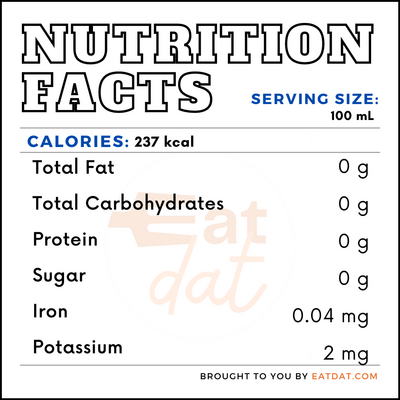
Mezcal
What is Mezcal?
Mezcal is an alcoholic drink of Mexican origin made from the agave plant. This hard liquor has a smoky, intense flavor, and is often consumed neat or in cocktails. It is a protected product and can only be manufactured in certain parts of Mexico, with 80 percent of the worldwide production being made in Oaxaca. This alcohol may be produced from any type of agave, though most of the production is from the espadín variety.
- This liquor can also be produced as a single variety or blended with different types of agave.
- Tequila falls under the same category, but is only considered as such if made with blue agave.
Some of the most popular brands include:
- El Silencio Espadín
- Mezcal de Leyendas Maguey Ancho Guerrero
- El Búho Espadin
- Mezcal Marca Negra Dobadán
- Montelobos Espadín
- Siete Misterios Pechuga
- Doña Vega Espadín
- Mezcal Vago Espadin
- Del Maguey Pechuga
- Ilegal Mezcal Joven
Origin of mezcal
This alcohol is derived from a type of beer known as pulque, produced by the indigenous tribes of Mexico from the leaves or sap of the agave plant. Prior to the conquest of Mexico by Spain, alcohol was a taboo and was heavily restricted. With European customs and diet introduced into the Americas, alcohol steadily became more acceptable. The Spaniards introduced the concept of distillation and began to experiment with the agave plant process, which led to the creation of this alcohol. A local saying attributes this beverage to all bad and good things in life.
Nutrition
One serving contains:

Agave has antioxidant properties, which can boost health. However, it is not recommended to drink alcohol in excess. Overconsumption of alcohol can lead to several health problems, including affecting the brain’s functioning patterns and general lowering of immunity. Liver cirrhosis, pancreatitis, high blood pressure, stroke, and different types of cancers can also result from drinking too much alcohol.
Commercial production
This liqour is prepared from any type of agave plant. The agave must be harvested just before it blooms to obtain the heart from which the alcohol is distilled. First, the plant is converted to starch by steam-roasting in a large pit. This is the step of the process that gives the drink its smoky flavor. Then, the roasted piñas are mashed and left to ferment for up to 10 days. Finally, the fermented drink is filtered and bottled.
It is best to store this alcoholic beverage in a cool and dry place away from direct sunlight. Avoid moisture by keeping it in an airtight bottle. This liquor will keep indefinitely for a long time, if properly stored.
Mezcal recipes
This liquor is most frequently consumed neat or used in cocktails. Here are a few popular recipes:
- Mezcalita
- Mezcal Negroni
- Citrus Kombucha Cocktail
- Mint Julep
- Pomelo Chiffon Cake
- Strawberry Pavlova
- Gâteau aux Épices Acadian
- Drunken Coconut and Pineapple Cake
- Chili Dark Chocolate Truffles
- Caramel Sauce
- Oaxacan Chocolate Cookies
FDA regulations
Mezcal is a protected product, and can only be manufactured in certain parts of Mexico, including Oaxaca, Durango, Guanajuato, Guerrero, San Luis Potosi, Tamaulipas, Zacatecas, Michoacan, and Puebla. In the US, this alcoholic beverage has not yet been defined as a distinctive product in TTB regulations. However, it does define this drink within the broad category of agave spirits, which are defined as alcohol distilled at less than 95 percent alcohol by volume and bottled at or above 40 percent alcohol by volume.
References
Tequila vs. Mezcal, Mezcal PhD.https://mezcalphd.com/2018/11/tequila-vs-mezcal/
Max Falkowitz, The Spirit of Mexico: A Guide to Mezcal, Serious Eats https://www.seriouseats.com/2018/06/guide-to-mezcal.html
Graham, The History of Mezcal and Its Tradition Of Life, The Knead Feed https://thekneadfeed.com/mezcal-traditions/
Ruiz-Terán, Francisco et al. “Mezcal: indigenous Saccharomyces cerevisiae strains and their potential as starter cultures.” Food science and biotechnology vol. 28,2 459-467. 16 Oct. 2018, doi:10.1007/s10068-018-0490-2 https://www.ncbi.nlm.nih.gov/pmc/articles/PMC6431317/
Monterrosas-Brisson, Nayeli et al. “Anti-inflammatory activity of different agave plants and the compound cantalasaponin-1.” Molecules (Basel, Switzerland) vol. 18,7 8136-46. 10 Jul. 2013, doi:10.3390/molecules18078136, https://www.ncbi.nlm.nih.gov/pmc/articles/PMC6269955/
